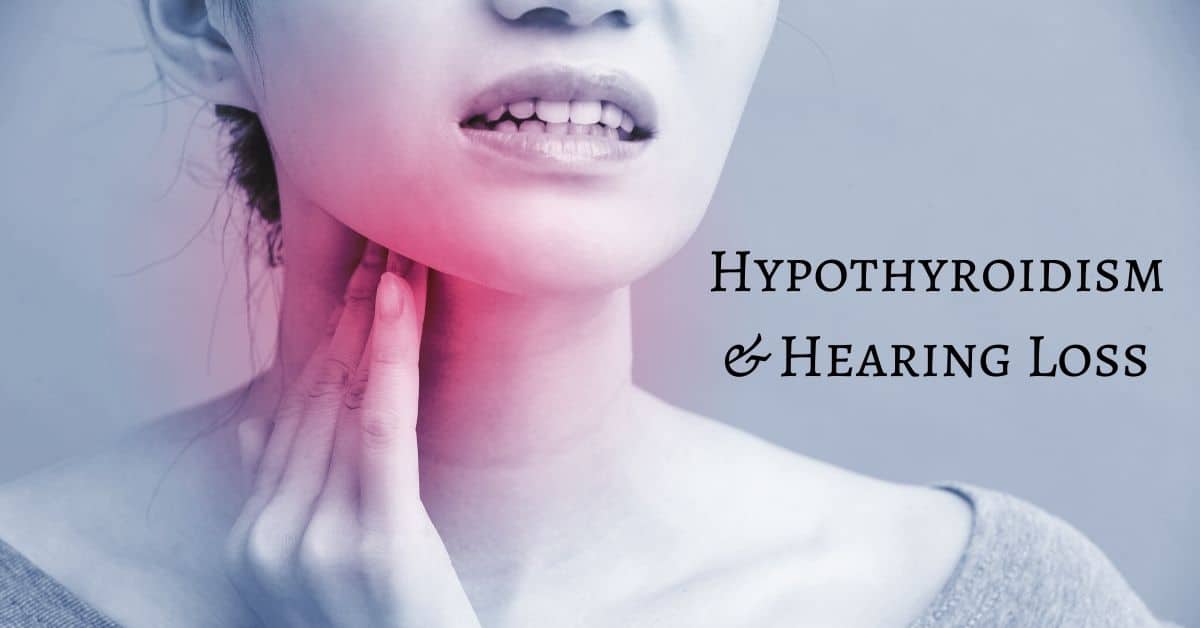- Understanding the Connection Between Tinnitus and Weather - May 17, 2025
- The Most Unexpected Reasons Hearing Aids Can Malfunction - May 9, 2025
- How OAE Testing Unveils Hidden Hearing Loss - April 15, 2025
If you have suffered from thyroid disease, you’ll be familiar with how mysterious the gland might seem. The thyroid is responsible for regulating many of the body’s processes, and experts point explicitly to its effect on metabolism. Let’s take a closer look at how the thyroid is related to hearing loss.
What is the thyroid?
The thyroid is a critical gland that is responsible for many vital functions. Situated just below your Adam’s apple, it contains two lobes connected by a bridge, on either side of the windpipe.
The main task of the thyroid is to produce and regulate hormones that manage your vital functions. This includes your heart rate and breathing, metabolism and digestion, and regulation of your body. The thyroid hormones also affect your brain and mood and can impair your hearing.
When there is a thyroid condition, it can have a significant impact on the essential functions of the body, including energy level, heart rate, central and peripheral nervous systems, body weight, and many others.
Common thyroid disorders include:
- Hyperthyroidism: This occurs, when the thyroid produces too much of the thyroxine hormone. Symptoms of hyperthyroidism include irritability, nervousness, muscle fatigue, unexplained weight loss, sleep disturbances, eye pain, and vision problems. Experiencing tinnitus and vertigo while suffering from hypothyroidism is also known to happen.
- Hypothyroidism occurs when this hormone isn’t released enough by the thyroid. It can lead to tiredness, fatigue, forgetfulness, and weight gain.
- Goiter is a condition in which the thyroid swells, and breathing and swallowing interfere.
- Thyroid cancer is comparatively rare to other cancer types. So, it usually reacts well to surgery or radiation therapy. Yet the latter could harm your hearing.
The thyroid and hearing loss
The World Health Organization ( WHO ) estimates that 466 million people are dealing with hearing loss worldwide. About 48 million Americans experience a degree of hearing loss (around 20 percent of the U.S. population).
Studies are ongoing in determining the link between hearing loss and both hyperthyroidism and hypothyroidism, although both have been associated with hearing loss disorders. They can affect hearing as well as lead to tinnitus and balance issues:
- Pendred syndrome, a genetic disorder that causes children to lose early hearing, also often leads to goiter growth.
- Grave’s Disease is an autoimmune condition where the thyroid is damaged by the immune system and produces more of the thyroid hormone than the body requires. It is one of the recognized causes of hyperthyroidism (an overactive thyroid).
- Hashimoto ‘s Disease: This is an autoimmune disease that affects the thyroid gland. It is commonly referred to as a cause of hypothyroidism (an underactive thyroid).
Thyroid cancer radiation treatment can cause hearing loss. Research has shown that patients undergoing head or neck radiation treatment for cancers— such as thyroid cancer — seem more likely to suffer hearing loss.
When the thyroid under-produces hormones that control the velocity of chemical transformation, the organs of the body can suffer from the deficiency; in the case of hearing, the tiny hairs of the inner ear depend on a regularly functioning bloodstream to continue their nuanced hearing functions. When oxygen or other essential resources are lacking, then these small hairs may be irreparably impaired.
The importance of regular hearing testing
The loss of hearing is typically not one of the first signs of either hypothyroidism or hyperthyroidism. Therefore, diagnosing and treating thyroid issues before they affect your hearing is essential.
Your hearing and health are more connected than we realize. Identifying changes in your hearing may help to identify other issues you don’t know about. We can’t emphasize enough the value of regular hearing check-ups to ensure your precious hearing doesn’t slip away. The sooner you notice a loss of hearing, the better we can help you get back on track and keep the hearing you still have.
We will check your hearing to diagnose a problem and help you find the right hearing aid for your lifestyle and hearing needs. Contact us today!

